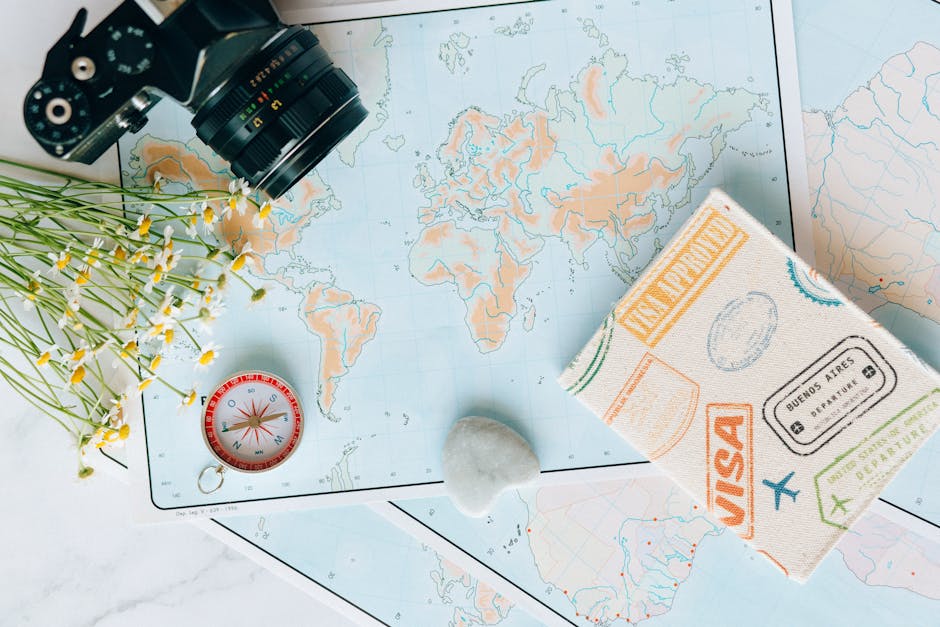International travel, a cornerstone of the tourism industry, often hinges on a crucial element: visa requirements. These regulations, established by individual nations, dictate who can enter their borders and for how long. While some countries welcome visitors with open arms, others impose stricter conditions. Understanding these variations is paramount for seamless travel experiences and avoiding potential disruptions.
Varied Visa Policies Across the Globe
A critical aspect of international travel is appreciating the multitude of visa policies. A nation’s history, political climate, and economic considerations often influence its visa regulations. Developed nations, for example, may have different visa procedures for short-term tourists versus those seeking long-term employment. Similarly, developing countries may have different requirements depending on the duration of stay and the visitor’s purpose.
A myriad of factors contributes to these complexities. Security concerns, labour market demands, and even cultural sensitivities play a significant role in shaping a nation’s approach to visa applications. The sheer volume of countries and their unique circumstances makes it challenging to create a universal set of rules.
Essential Factors Affecting Visa Requirements
Numerous factors shape a country’s visa policy. Purpose of visit, nationality, and duration of stay are key determinants. A tourist seeking a short-term visit will likely face different requirements compared to a prospective worker or student. Likewise, citizens of some countries might require a visa for relatively short trips, while those of others can travel visa-free for extended periods.
The duration of the visit is often a significant element. For a brief vacation, a tourist visa might suffice. However, longer stays typically necessitate more extensive documentation. This often involves proving financial stability, lodging arrangements, and evidence of purpose.
National Origin as a Factor
A traveller’s nationality significantly impacts their visa requirements. Certain countries enjoy visa-free access to a multitude of nations, while others may need a visa for practically every destination. This disparity is often based on historical relations, economic agreements, or reciprocal arrangements between nations.
Purpose of the Trip – A Crucial Determinant
The intent of a traveler’s journey is a pivotal aspect. A business trip will necessitate distinct documentation from a tourist visit. Similarly, a student visa has different provisions than one for an investor. The purpose of the visit directly influences the requirements and documents needed.
Navigating Visa Application Processes: A Practical Guide
Given the complexity of visa regulations, meticulous preparation is critical. Comprehensive research into the specific requirements of the destination country is essential. Consulting official government websites for the most up-to-date information is paramount. Many embassies and consulates provide detailed instructions on the visa application process, including necessary documents and timelines.
Document Collection: Key Components
Preparing the necessary documents is an integral part of the visa application process. Passport validity, proof of accommodation, financial stability, and travel insurance are frequently demanded. These documents provide assurance about the traveller’s intentions and ability to manage their visit without undue burden on the host nation. Moreover, specific documentation may be required depending on the visitor’s profession or purpose of travel. It is crucial to be well-prepared and gather all essential paperwork.
Visa Processing Times and Costs
Application processing times vary widely among countries. Some nations might have quick turnaround times, while others can take several weeks or even months to process applications. The costs associated with visa applications also differ. Some nations may charge nominal fees, while others might levy higher costs. Understanding these factors is critical for efficient travel planning.
The Role of Travel Agents and Professionals
Travel agents or immigration consultants can be invaluable assets in navigating visa requirements. They possess in-depth knowledge of various visa regulations and can guide travellers through the process, minimizing potential pitfalls and ensuring compliance. Experts in this field can help prepare the application materials and understand nuanced aspects of visa policies.
The Future of Visa Regulations
Globalization and technological advancements are steadily influencing visa policies worldwide. Electronic visa processing and automated systems are becoming more prevalent, promising streamlined and efficient procedures. International cooperation and agreements are fostering greater consistency in visa regulations. These evolving trends might offer a more streamlined approach to international travel in the future.
Conclusion
Navigating the world of visa requirements for various nations demands understanding the intricate web of regulations. Different countries impose unique requirements based on various factors like the traveler’s nationality, purpose of visit, and intended duration of stay. Diligent research, comprehensive documentation, and potentially professional guidance are essential for seamless travel experiences. The evolving global landscape suggests that future visa processes may become more standardized and efficient. For the traveler, understanding and adhering to these regulations will continue to be a vital element for a successful and smooth travel experience.
